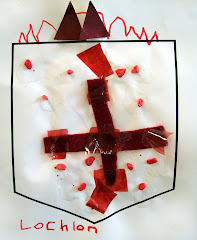Children have a drive to be independent and do things on their
own. This is a healthy part of normal child development. As children grow, they
learn to do more and more tasks.
Parents and carers can help young children become independent by
allowing and encouraging them to take responsibility for themselves whenever
possible. It can be faster and less messy to do things for children, but they
learn so much from doing things for themselves. When children practice
self-help skills such as feeding and dressing themselves, they practice their
large and small motor skills, gain confidence in their ability to try new
things and build their self-esteem and pride in their independence.
There are four main types of self-help skills:
·
Self-feeding. The best way to build independent feeding skills is to learn
the normal developmental stages of self-feeding. Encourage children to practice
feeding themselves from infancy on. Begin by offering older infants finger
foods. Introduce a spoon and fork and give children plenty of time to practice.
Let children be as independent as possible during mealtimes. Give them the
tools they need to be successful. Consider bowls that attach to the table,
child-sized utensils and small cups with handles and spouts (such as measuring
cups) for pouring. Encourage children to try for themselves but provide help
and encouragement when needed so they don't get frustrated.
·
Independent dressing
and grooming. Encourage children
to dress and groom by themselves; just provide minimal assistance. Begin with
older infants and toddlers by encouraging them to help pull socks on and off,
pull up pants after diapering and help put their arms through sleeves. As
children get older, encourage them to dress themselves but help with
challenging steps such as zipping and buttoning.
·
Hygiene and
toileting . Look for signs of readiness for toileting.
Encourage children learning to use the toilet to climb on and off the toilet
seat, pull clothing up and down, and wash their hands independently. Also teach
children how to brush their teeth after lunch and snacks. Be ready to provide
support and help if they need it. Encouraging children to take care of
everyday hygiene routines and to use the toilet independently helps them learn
how to become more independent and self-sufficient, and frees up your time to
help children with other activities.
·
Helping with daily
chores like table setting and picking up toys.
Encourage children to help with clean-up early on. Give toddlers responsibility
for placing napkins or utensils on the table. Encourage children to begin
clearing their own plates when they are old enough to carry them without
dropping them. When children are involved in regular chores starting before the
age of 4, they tend to be more independent in early adulthood than children
without the experience of helping out.
Self-help skills are worth the time and effort. The secret to
success is to give children age-appropriate experiences and provide the
appropriate supports to help children be successful. We can offer opportunities
for children to develop self-help skills and give them ample time to work on
these important tasks. Remember that adults are important role models. We model
self-help skills; children learn a great deal from watching us.
Emma McKenzie
Edgerley Teacher/ Well-being facilitator
